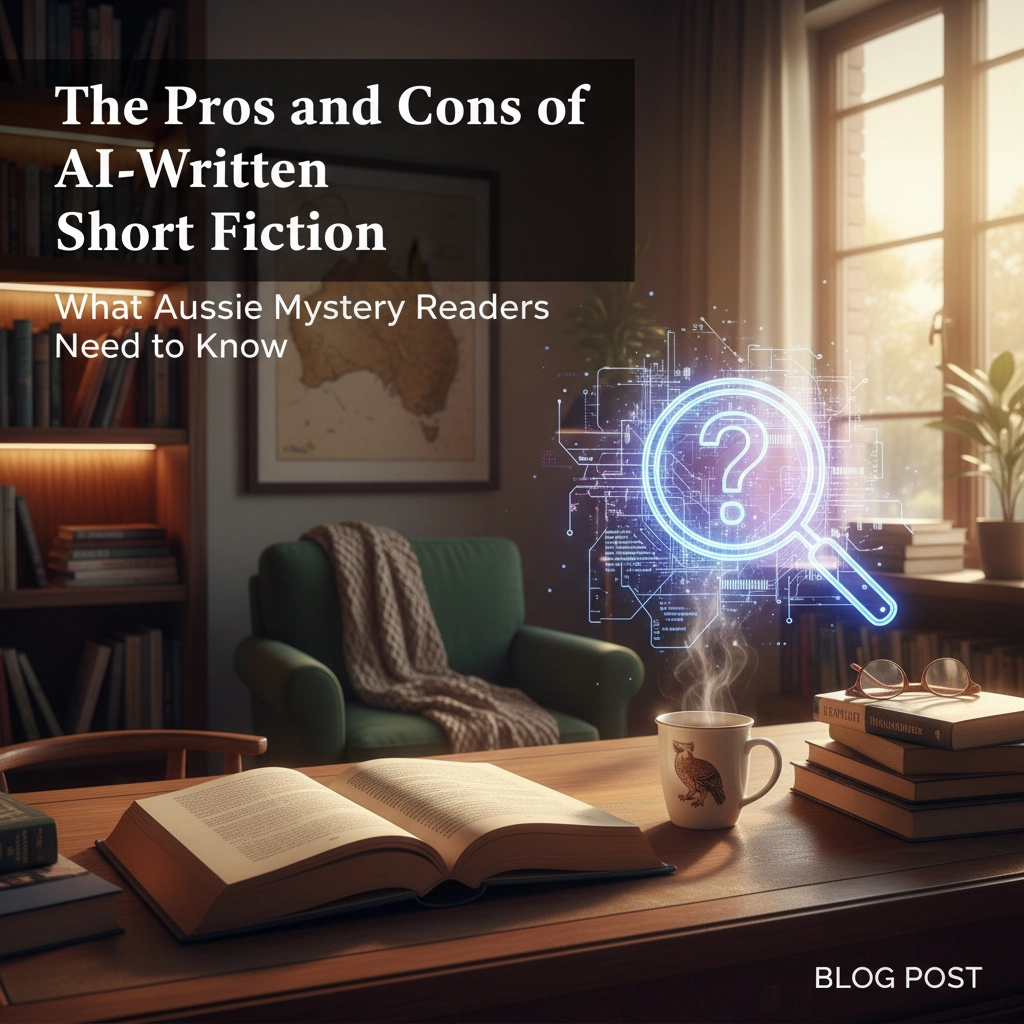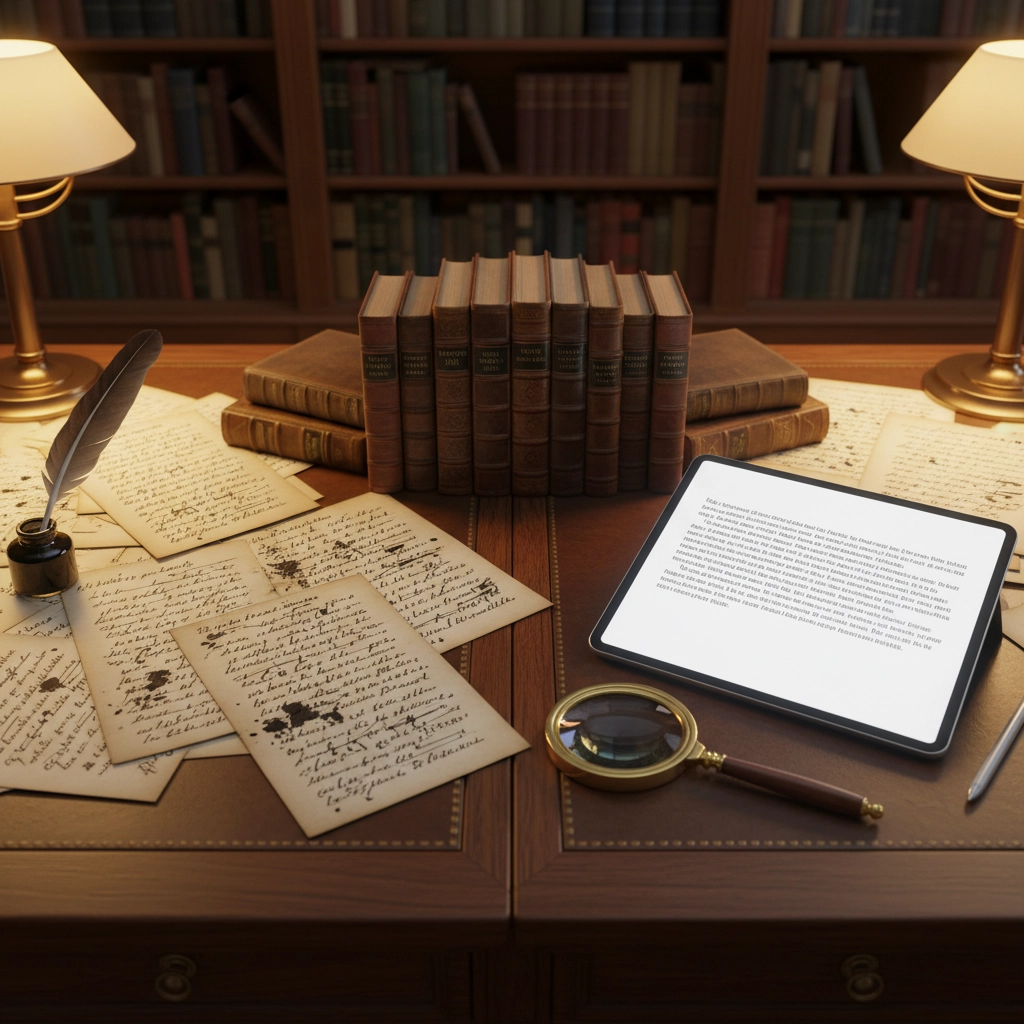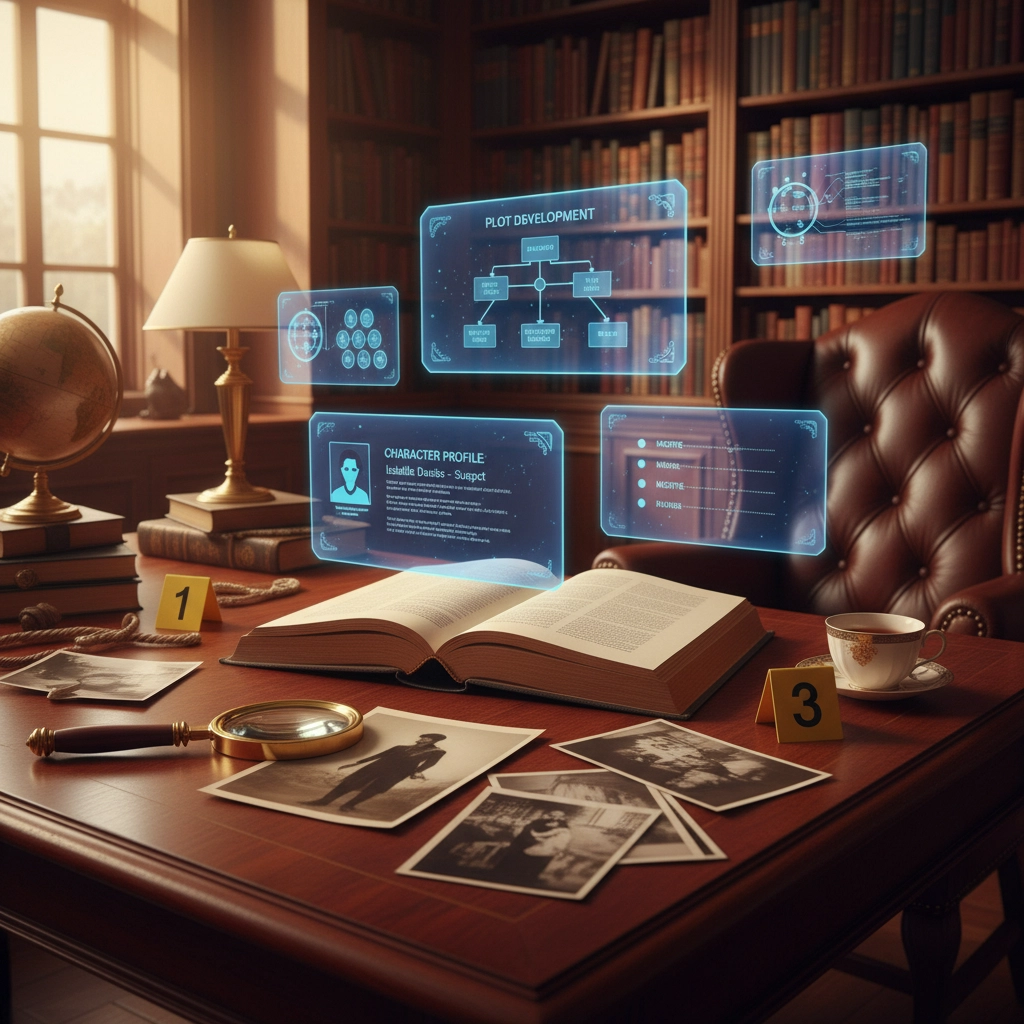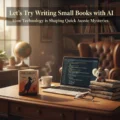
The Pros and Cons of AI-Written Short Fiction: What Aussie Mystery Readers Need to Know
G'day, mystery lovers! 📚
If you've been browsing your favourite bookstore or scrolling through digital platforms lately, you might have noticed something interesting: AI-written short fiction is popping up everywhere. And yes, that includes our beloved Australian crime and mystery stories. As someone who's passionate about quality storytelling, I reckon it's time we had an honest chat about what this means for us readers.
Whether you're a devoted fan of Australian murder mysteries or someone who loves a quick mystery fix during your lunch break, AI-generated fiction is changing the game. Let's dive into what's actually happening and what you need to know.
The Good Stuff: Why AI Might Just Be Your New Reading Buddy 🤖
Lightning-Fast Story Production
Here's the thing that'll blow your mind: AI can churn out short mysteries faster than you can say "whodunit." We're talking complete stories in minutes, not months. For us readers, this means potentially endless content. Imagine having fresh Australian crime stories available whenever you want them: no more waiting years between your favourite author's releases.
Fresh Plot Twists You Never Saw Coming
AI has one superpower that's genuinely impressive: it can analyse thousands of existing mystery novels and spot patterns we humans might miss. This means it could potentially create plot combinations that haven't been done to death. Think of it as having access to every crime database and forensic manual, then mixing them up in ways that surprise even seasoned mystery fans.
Technically Spotless Writing
If you're someone who gets distracted by typos or grammatical errors (and let's be honest, who doesn't?), AI-generated stories often come with built-in proofreading. The technical quality is usually pretty solid: no more being pulled out of a gripping chase scene by a misplaced comma.

The Not-So-Great Bits: Where AI Falls Flat on Its Digital Face 😬
Cookie-Cutter Mysteries
Here's where things get dicey. AI learns from existing stories, which means it tends to rehash what's already been written. For Australian mystery fans, this could mean endless variations of the same outback detective or Sydney harbour body-in-the-water scenario. The unique voice that makes authors like Peter Temple or Jane Harper so compelling? That's still firmly in human territory.
Missing the Human Heart
Mystery fiction isn't just about solving crimes: it's about understanding human nature, moral complexity, and the grey areas that make us squirm. AI struggles massively here. It can tell you that the butler did it with the candlestick in the library, but it can't make you care why the butler's life led to that moment, or feel the weight of that choice.
Getting the Details Wrong
This one's crucial for mystery readers. AI can sometimes get facts, locations, or logical sequences wrong in ways that completely derail a story. Imagine reading about a Melbourne detective who somehow drives from Flinders Street to Bondi Beach in twenty minutes, or a forensic timeline that makes no sense. In mysteries, where every detail matters, these errors can be story-killers.

What This Means for Your Reading Experience 📖
The Predictability Problem
As more writers lean on AI tools, we might see a surge in formulaic mysteries. That carefully crafted red herring that kept you guessing until the final page? It might become as predictable as a morning coffee routine. The ingenious plot twists that make you go "How did I not see that coming?" could become rare treasures.
Quality Becomes a Lucky Dip
Not all AI-generated content is created equal. Some might surprise you with decent storytelling, while others might read like they were written by a computer that learned English last Tuesday. Currently, fully AI-generated books often deliver pretty disappointing reading experiences: though AI-assisted content (where humans guide the process) can be significantly better.
The Honesty Question
Here's something worth thinking about: do you want to know when you're reading AI-generated content? Some platforms are starting to label AI-assisted work, but others aren't being so transparent. As a reader, you deserve to know what you're getting into.
How to Spot AI-Generated Mystery Fiction 🕵️
Watch for Generic Character Names
AI often defaults to very common names and character types. If you're seeing the same "Detective Sarah Johnson" or "Inspector Michael Brown" across multiple stories, that might be a red flag.
Look for Repetitive Plot Structures
AI tends to follow similar story arcs. If you notice mysteries that all seem to follow identical pacing or revelation patterns, you might be reading AI-generated content.
Check the Emotional Depth
Human-written mysteries usually have characters with complex motivations and emotional backstories. AI-generated stories often feel more surface-level, focusing on plot mechanics rather than character development.

The Sweet Spot: AI as a Writing Assistant, Not Replacement ⚖️
The most promising future probably lies somewhere in the middle. Writers using AI tools to enhance their creativity: not replace it: might give us the best of both worlds. Think of AI as a really smart research assistant that can help with plot ideas, fact-checking, or even generating initial drafts that human authors then polish into something special.
Some authors are already experimenting with this approach, using AI to help with brainstorming or tackling writer's block, then applying their own creativity, experience, and emotional intelligence to craft the final story.
What Should Aussie Mystery Readers Do? 🤔
Stay Curious but Cautious
Don't write off AI-generated content entirely, but don't expect it to replace your favourite human authors either. Try a few AI-assisted stories and see what you think: just go in with realistic expectations.
Support Transparency
When publishers and platforms are upfront about AI involvement, reward that honesty with your attention. Transparency helps everyone make informed choices about their reading material.
Keep Supporting Human Authors
The creativity, cultural understanding, and emotional depth that human authors bring to Australian mystery fiction is irreplaceable. While AI might supplement our reading diet, it can't replace the unique perspectives and lived experiences that make great storytelling.
The Bottom Line 📚
AI-written short fiction isn't going anywhere: it's part of our literary landscape now. For Australian mystery readers, this means more content options but also a need for more discerning choices. The technology has some genuinely useful applications, especially when it's supporting human creativity rather than replacing it.
But here's what won't change: the best mysteries: the ones that keep you up at night, make you question everything, and leave you thinking long after the final page: will still come from human hearts and minds that understand the complexity of the human condition.
Ready to explore more fantastic mystery fiction from Australia? Whether it's AI-assisted or purely human-crafted, great storytelling is still great storytelling.
Happy reading! 🕵️📚✨
Share



